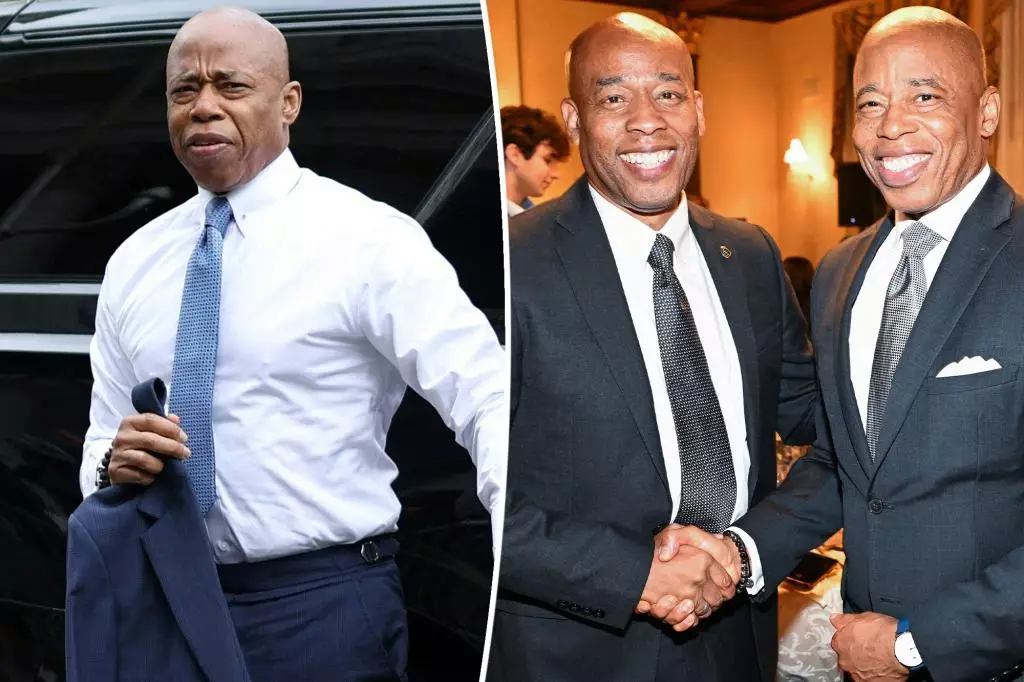The charity sector is one that demands transparency, accountability, and a robust connection with its supporters. Recently, a situation unfolded surrounding Bernard Adams’ charity, Angels Helpers, that painted a troubling picture of how a non-profit can falter. This particular instance highlights not only the complications surrounding event cancellations but raises vital questions about communication strategies, donor trust, and the ethical responsibilities of individuals in philanthropic roles.
Scheduled for a Thursday evening, a gala promising opulence and elegance was set to take place under the auspices of Angels Helpers. With ticket prices soaring to $11,000 and the allure of speeches by influential figures, including Mayor Eric Adams, expectations were high. Yet, just as anticipation peaked, word leaked that the gathering had been canceled. What emerged was a troubling tale about miscommunication and unfulfilled promises. Guests expressed frustration upon discovering the cancellation, with some claiming they were not notified in a timely manner. In an era of instant communications, it seems baffling that such a breakdown occurred, especially for an event of this scale.
What’s particularly unsettling is the continued reference to the gala on the charity’s website, where options for ticket purchases remained available, even as guests telephoned to inquire about their attendance. This kind of oversight casts doubt on the organization’s capabilities to manage its digital presence and engenders skepticism among potential donors. Such mismanagement risks alienating supporters and jeopardizes potential future funding.
Compounding the issue was the discrepancy in messaging regarding notifications of the cancellation. The charity claimed it had appropriately communicated with ticket buyers, specifically via direct WhatsApp messages sent to close friends. This raises critical questions: Who constitutes a “close friend”? If only a select group received timely updates, did the organization neglect its broader pool of supporters? Moreover, considering that some attendees learned about the cancellation only upon arriving at the venue, it underscores the dangers of relying too heavily on informal communication channels. The absence of a formal notification system left many in the dark, leading to embarrassment and confusion at the planned location.
The charity’s defense came from Angelo R. Bisceglie, Jr., the charity’s lawyer, who asserted that all prospective guests were called to inform them of their refund rights. This assertion begs an examination of methodology: did the organization make genuine attempts to ensure that its key stakeholders were in the loop? Or was the approach merely procedural—a box checked without earnest engagement?
Beyond the mishaps related to the gala’s cancellation, there are broader implications tied to Bernard Adams’ past ties to his brother, Mayor Eric Adams. Previously serving as the mayor’s head of security raised eyebrows and ethical concerns regarding family connections in public service. The city’s Conflicts of Interest Board had to intervene to regulate his appointment and reduce potential conflicts. When transgressions occur in the philanthropic sphere, they can breed distrust and diminish the credibility of an organization, particularly when its leadership doesn’t reflect a commitment to ethical governance.
The link between personal relationships and professional roles is glaringly evident with the Adams brothers. Citizens expect transparency and responsibility, particularly from entities that solicit community support. From this lens, the charity must not only prove it’s committed to its mission but must also navigate the public’s perceptions of potential favoritism rooted in familial ties.
The unfolding saga surrounding Angels Helpers showcases just how essential effective communication systems, ethical governance, and robust business practices are for charitable organizations. These entities thrive on public trust, and it’s imperative that instances of miscommunication and lapses in protocol are avoided.
Moving forward, the charity not only needs to ensure comprehensive communication strategies to keep all stakeholders informed but also ought to reconsider its internal frameworks regarding ethical governance. Open discussions about its decision-making processes can rejuvenate confidence and reinstate trust among its supporters. They should implement clear protocols to safeguard against similar occurrences, ensuring that donors feel secure and valued, not dismissed.
To transform this unfortunate situation into a productive learning opportunity, Angels Helpers might consider more rigorous oversight and systematic engagement with its donor base. Moving ahead, fostering trust through transparency and accountability can serve as a critical foundation for the charity’s future endeavors, leading to genuine impact for the youth it aspires to serve.

